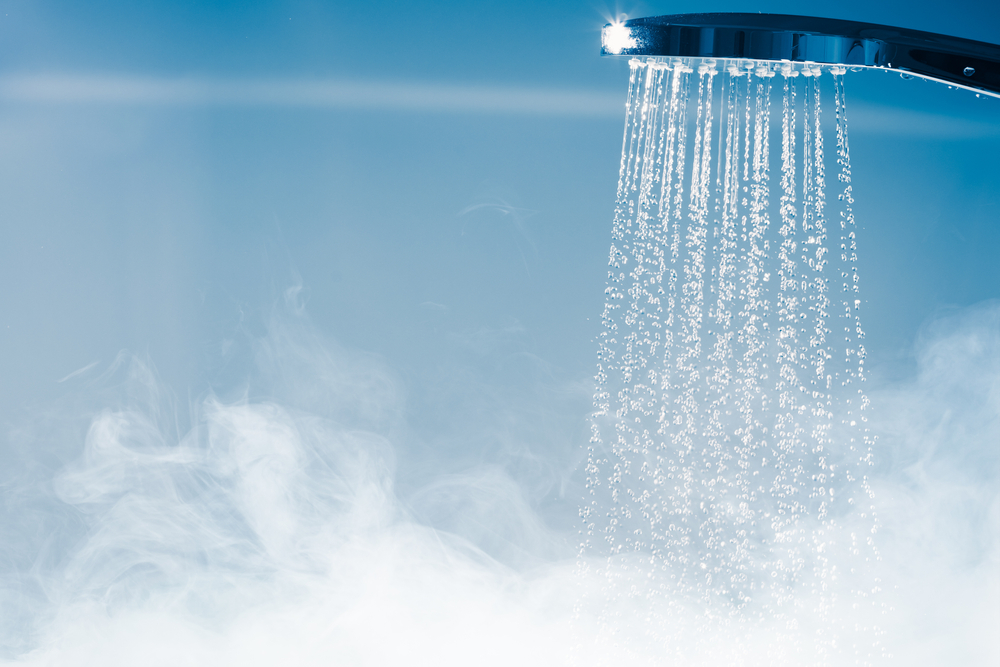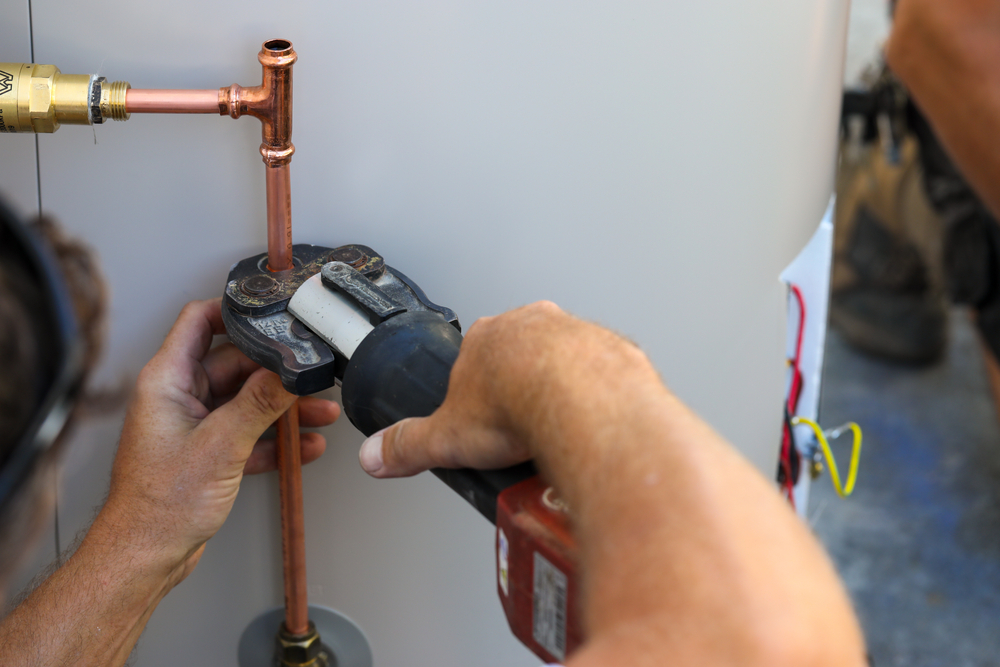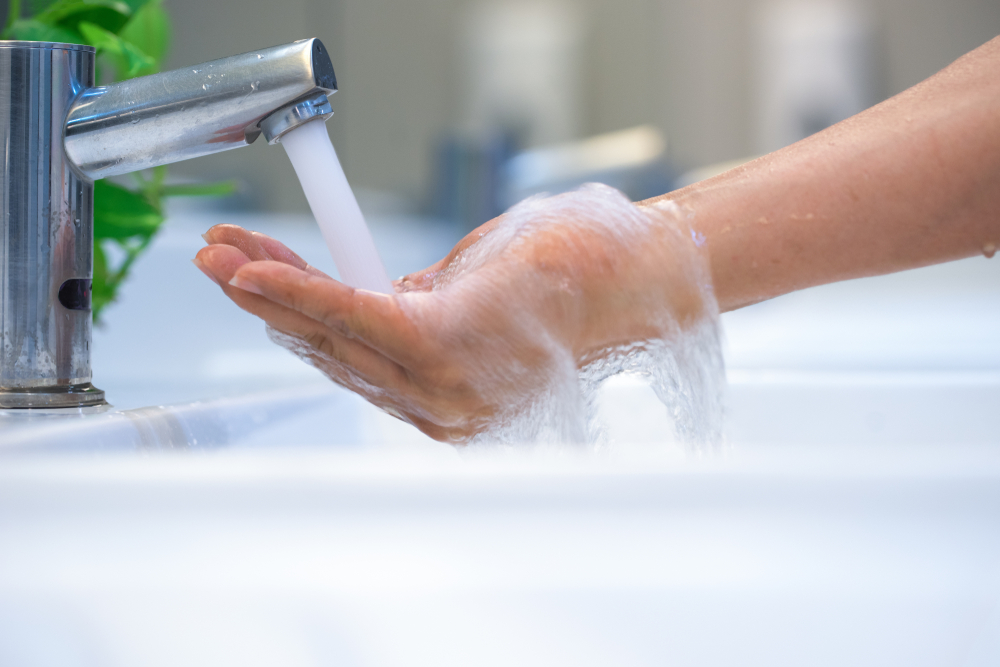
Warm water is essential for everything from cleaning the dishes we eat off to washing the clothes on our backs.
And let’s not forget that everyone loves a hot shower!
Despite all this, we rarely think about our hot water systems, let alone water heater servicing.
As experts in everything from gas hot water in Reservoir to ducted gas heating in Mount Waverley, we know a thing or two about caring for your property’s most neglected system.
In this article, we’ll tell you everything you need to know about your hot water system, including how often you should book water system services.
The water heater is one of the most important parts of any property.
It’s often called a hot water service, hot water system, hot water heater, or boiler. A hot water system provides heated water for everything from your kitchen taps to your bath, shower, and hydronic heating system.
There are several different types of water heaters, including:
As well as storage and continuous flow, hot water systems can be differentiated based on the fuel they use.
Electric water heaters use a heating element and warm your water in a similar way to a kettle. Gas water heaters create heated water via gas combustion and make use of natural gas or bottled LPG (Liquefied Petroleum Gas).
Solar systems are electric-powered water heaters that take advantage of your solar panels for energy-efficient heating. Heat pump hot water systems transfer heat in the same way as reverse cycle air conditioners. They are another electrically powered water heating option that offers energy-efficient operation and low power consumption.

Here is a suggested regular servicing schedule for each type of boiler.
As well as these guidelines, you should refer to the manufacturer’s instructions and watch for performance issues to determine when your hot water system should be serviced.
For storage hot water units, there are two main tasks that you can take care of yourself. These are checking the Temperature and Pressure Relief Valve and the Sacrificial Anode Rod.
The temperature and pressure relief valve automatically activates in an emergency to relieve pressure in your water heater tank. This valve is located on the side or top of your water heater and is connected to a discharge tube.
To ensure your TPR valve is working properly, it should be tested every six months. This simply involves opening and closing the valve, but it will release very hot water, so precautions should be taken.
If you’re experiencing any of these problems, call our professionals for a service.
The Temperature and Pressure Relief Valve may also be known as the TRP valve, PTR valve, T&P valve or P&T valve.
The sacrificial anode rod is a metal rod inside your water heater tank. This rod is designed to attract minerals and impurities in the water, ensuring those impurities don’t affect the tank over time.
Basically, the sacrificial anode rusts so your water heater doesn’t have to. However, the rod will stop working once it’s completely deteriorated, so it will need to be checked regularly. This is an essential part of water tank maintenance.
You can check the sacrificial anode every six months by following these steps, or you can just leave it to a professional during your next service:
1. Switch off the power (gas or electricity) to your system and also switch off the cold water supply.
2. Pull open the TRP valve as described above to release some water. Then close the valve again.
3. Connect a garden hose to the tank’s drain valve and open the valve to drain all the water from the tank.
4. Once the tank is empty, you can remove the sacrificial anode by unscrewing its hex head bolt. The anode is usually found on top of your system. You may have one or more anodes.
5. If the rod looks severely rusted or deteriorated, call a professional for a replacement and a service.
6. While your tank is empty, you can also flush out the sediment at the bottom by turning on the cold water supply for about 20 seconds and re-draining the tank. This process can be repeated until the water coming out of your garden hose is clear.
7. At the end of the process, retighten the anode rods, ensure the drain valve is closed, remove your hose, and switch the power and water supply back on. Don’t forget to call Absolute Airflow if you need professional servicing and anode rod replacement!
As well as following service schedules and performing at-home checks, here are a few other signs that your water heater might need servicing:

The licenced plumbers and heating and cooling specialists at Absolute Airflow can:
With proper servicing and maintenance, your hot water unit can last between 10 and 15 years before its performance and efficiency begin to suffer.
Absolute Airflow can assist you with all your heating and cooling needs from Thomastown to Hoppers Crossing and Ringwood to Roxburgh Park.
To book a hot water service or to replace your old system, contact us today for a quote.

© Copyright 2025 - Absolute Airflow - All Rights Reserved